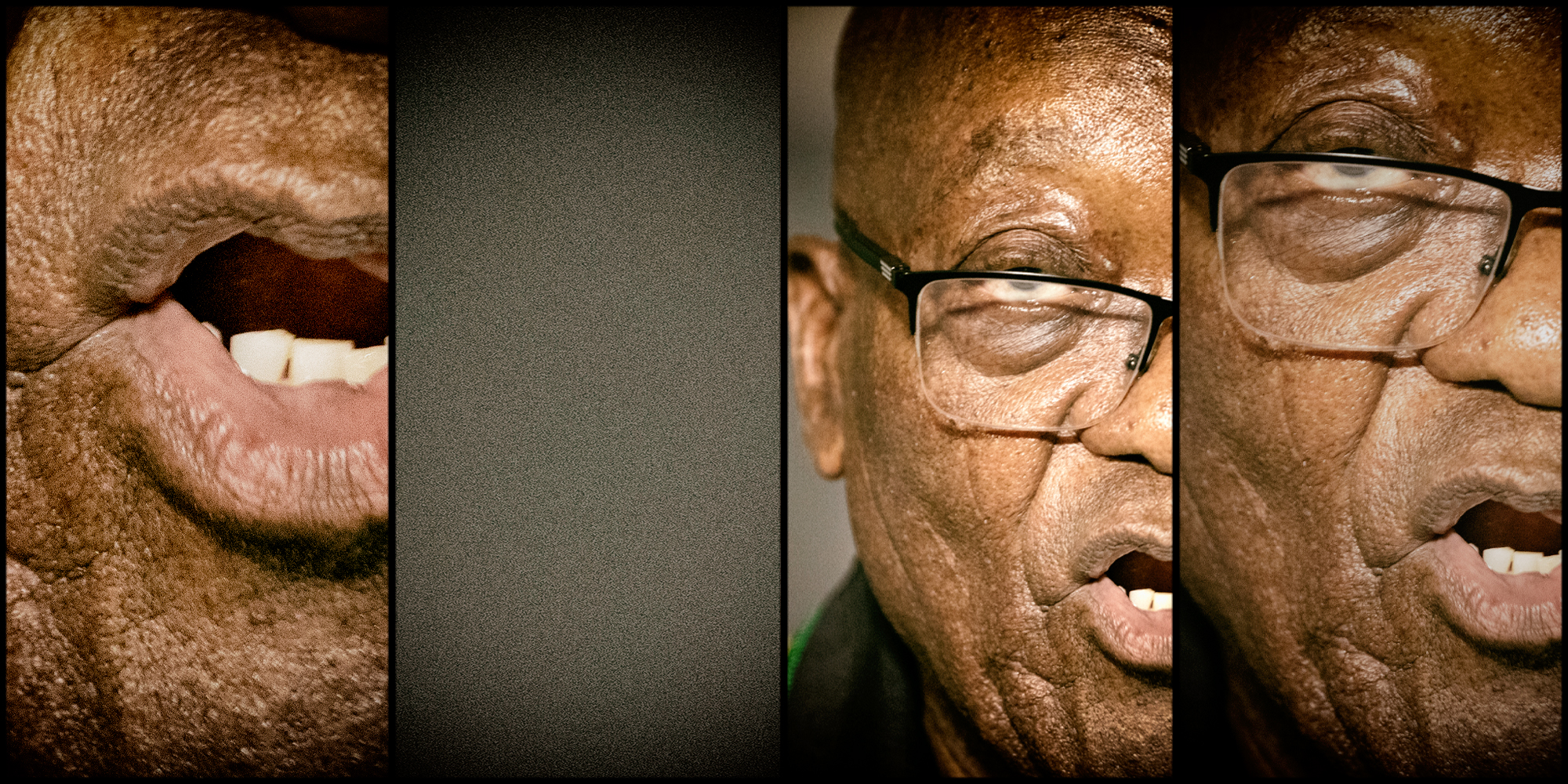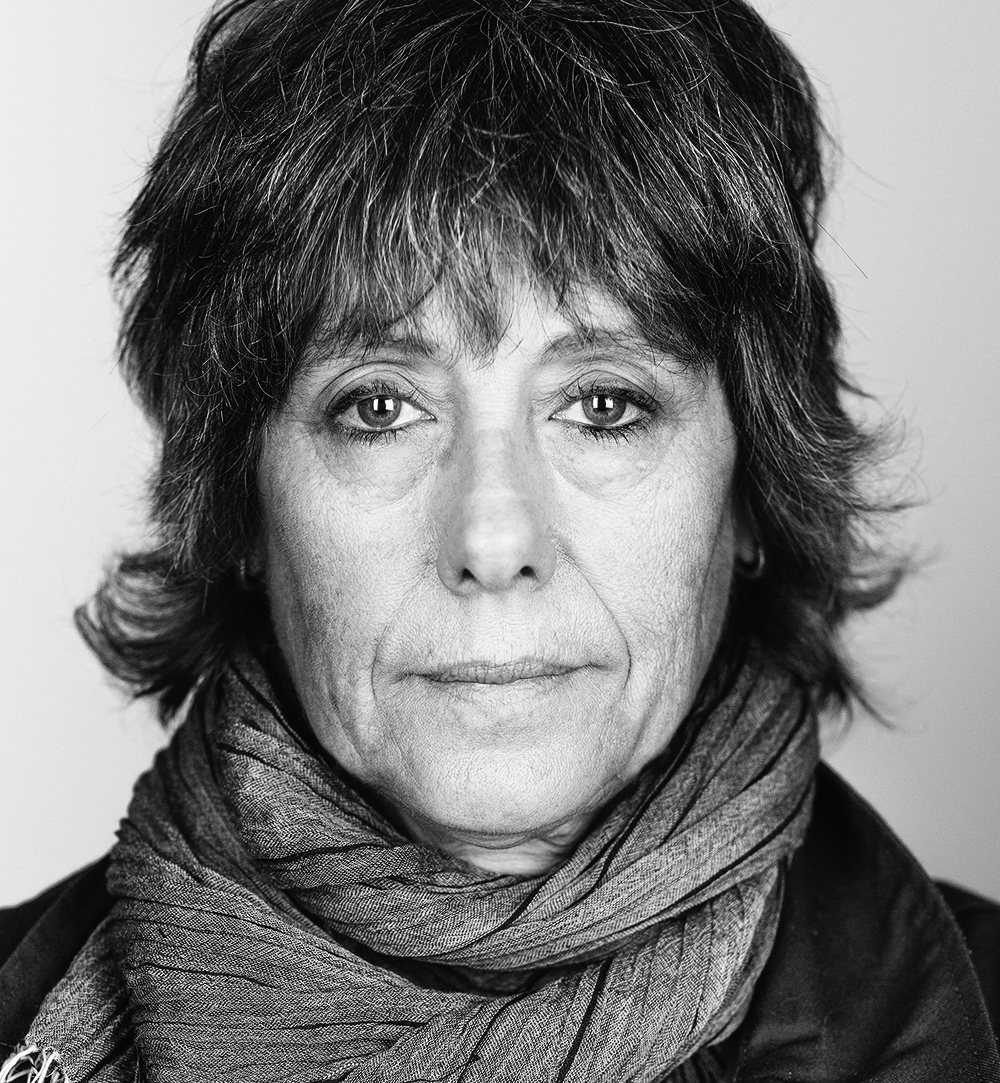Winnie Madikizela-Mandela was reading a biography of Tolstoy when security police kicked down the door of her home in Soweto on the night of 12 May 1969.
Madikizela-Mandela recounted the moment in detail in her 2013 memoir, “491 Days: Prisoner Number 1323/69”.
She remained in detention until February 1970 while charges were formulated and then withdrawn. As Madikizela and 22 others stepped out of court, they were re-detained by security police and taken back to their cells.
“I was stripped outside and entered the cell naked after the matron had searched my naked body. Inside the cell, my clothes were on the floor, four stinking blankets, one sanitary bucket and drinking water plus two sisal mats.” (Pg 13).
***
On 6 August 2021, Jacob Zuma’s legal team filed papers in the Constitutional Court responding to a request by the court for the legal teams from both sides to make fresh submissions on the role of international law in the case, and in relation to Zuma’s last-minute application for a rescission of the sentence (still to be decided).
Zuma has argued that the court violated his rights to a fair trial and that international law required judges to allow him a full criminal trial before sentencing him.
Zuma and his supporters have repeatedly circulated the lie that the former president has been “detained without trial”.
The facts could not be further from the truth, and the ongoing perpetuation of this interpretation of why Zuma finds himself behind bars diminishes and negates the suffering and pain of those who faced this particular form of brutality under the General Laws Amendment Act of 1961 and the Terrorism Act of 1967, as well as other laws.
From Solwandle Looksmart Ngudle on 3 September 1963 to Alfred Mabake Makaleng on 26 August 1988, there were 67 acknowledged deaths in detention in apartheid South Africa.
The Terrorism Act gifted the state with a deadly and “legal” iron fist and was passed two years before Winnie Mandela was dragged off in the night by Major Johannes Viktor and his security police goons, leaving behind two small daughters.
It was the massacre of 69 people at Sharpeville in 1960 that prompted the passing of the General Laws Amendment Act, providing for 12 days detention without trial in non-emergency situations. In 1963 this was extended to 90 days.
With the Terrorism Act, detainees could be held indefinitely in despicable conditions for “interrogation purposes” without access to family, the courts or legal representatives.
Around 1.30am on 8 July 2021, Jacob Zuma’s VIP motorcade snaked through the gates of the Estcourt Correctional Centre where the former president was set to begin serving a 15-month sentence in the new facility for contempt of court.
The night before, Zuma had been holed up with his family and friends in his Nkandla home, with its R240-million upgrades and high-security fence, negotiating his “hand-over”.
Zuma’s first night behind bars warranted a media conference by Justice Minister Ronald Lamola the following morning, confirming the new inmate was “in good spirits” after having had his breakfast and taken his medication.
Correctional services later released a menu of what Zuma’s breakfast might have looked like. Cereal, milk, sugar, bread with margarine and spread and tea or coffee with sugar and milk. At lunch, the former president would be presented with a light meal, a vitamin-enriched drink or fresh fruit or soup.
Dinner would be a protein-rich dish, starch, two vegetables, tea or coffee with sugar and milk.
During her detention without trial, Winnie Mandela was served uncooked porridge and black coffee for breakfast, porridge and sugar beans for lunch and “dry cooked mielies and phuzamandla” for supper. (Pg 16).
In August 2021, Zuma was transferred to a hospital outside prison for observation prior to a medical procedure. This has once again delayed his corruption trial.
Winnie Mandela’s interrogation sessions and prison conditions were so dire and cruel that she considered suicide at one point: “I thought there would be no better method of focussing the world attention on the terror of the Terrorism Act than this.” (Pg 25).
She had been detained while suffering from a heart condition and lost a serious amount of weight. She also found “my monthly periods are just continuous”. Solitary confinement and torture caused other life-long ailments that were to remain with Winnie Mandela as a reminder of this wretched time in her life.
Her treatment in prison hospitals would bear no resemblance to the treatment Jacob Zuma is currently receiving.
By the time teacher Ahmed Timol fell to his death from the 10th floor of John Voster Square in 1971, there had already been 21 deaths in detention in police cells and prisons across South Africa. In 2021, 50 years after Timol’s death, security policeman Joao Rodriques faces trial in a democratic South Africa – but only after a relentless push by members of the Timol family for the apartheid policeman to be held accountable.
Many detainees were subjected to sadistic torture, including Barbara Hogan, later to become a Cabinet minister in an ANC-led government.
Jacob Zuma was presented with multiple opportunities to engage with and comply with a 29 June Constitutional Court order that he appear before the Zondo Commission of Inquiry into State Capture or face censure, including possible imprisonment.
As a powerful politician accused of being at the centre of a political and economic project which weakened the state and took corruption to new heights in the ANC, Zuma has always claimed his innocence and demanded his “day in court”.
From the outset, the former president was vociferously averse to being held to account by the commission, no matter how gently everyone massaged his heart of stone or ameliorated his simmering rage and resentment.
For Jacob Zuma – once the most powerful man in the country – and his family and supporters to peddle the lie that he has been detained without trial is a cynical undermining of history and a negation of the sacrifice and suffering of those who fought and died for the very constitutional democracy Zuma has trampled on time and time again.
In November 2020, Zuma walked out of the commission after an unsuccessful application for Deputy Chief Justice Raymond Zondo to recuse himself. He made his exit flanked by bodyguards and lawyers and was whisked away by his driver.
Zuma contested the historic 29 June Constitutional Court verdict that he was guilty of contempt and should face 15 months behind bars. However, he declined to offer any justification or explanation for his decision to defy an order by the same apex court.
And so it came to pass that Zuma was indeed arrested and incarcerated.
As colleague Stephen Grootes noted, Zuma was going to go to jail not for facilitating industrial-scale corruption during his term of office and bringing the state and the country to its knees – not because he irregularly received money from Schabir Shaik – “but simply because he refused to obey a Constitutional Court order that he must testify at the Zondo Commission”.
“To put it another way; he’s going to jail for refusing to give evidence that he has said he wanted to give, to a commission he himself appointed.”
Zuma has been amply represented in his more than decade-long legal challenge of pending corruption charges related to the arms deal. In fact, the taxpayer has so far funded Zuma’s estimated R15-million worth of legal bills in various attempts to escape prosecution – an amount that he has now been ordered to repay.
For Zuma to compare his current situation with that of apartheid detainees is opportunistic and disrespectful.
Zuma’s lawyer, Advocate Dali Mpofu, has argued that the court has violated the former president’s fair trial rights and that international law required judges to allow him a full criminal trial before sentencing.
“A fair criminal trial cannot mean the same thing as motion proceedings in the Constitutional Court (or any other court.) A fair trial is not even the same thing as a fair civil trial, let alone motion proceedings,” Mpofu argued.
The Constitutional Court has now called for the parties to file papers between 13 and 18 August, which consider the role of the UN International Convention on Civil and Political Rights (ICCPR), with specific reference to Articles 9 and 14.
Zuma’s legal team argued that “a correct reflection of the ICCPR within our Constitution would lead to the conclusion that Mr Zuma’s incarceration was a grave judicial error”.
Earlier, Advocate Thembeka Ngcukaitobi, representing the Zondo Commission in the Constitutional Court application for censure, said that despite an order from the highest court, Zuma had failed to appear at the commission in February as he had been summoned to do.
Zuma had failed to participate in the hearing or submit court papers to argue why he should not be held in contempt. Ngcukaitobi said the law provided that those who wilfully and in bad faith did not comply with court orders, were held in contempt.
“His status as former president does not protect him from the law.”
At a press conference at Nkandla on the Sunday prior to his arrest on 7 July, Zuma likened his imminent arrest to apartheid-era “detention without trial”.
“Things like detention without trial should never again see the light of day in South Africa. The struggle for a free South Africa was a struggle for justice that everyone was treated equally before the law,” said the former president.
Zuma’s supporters argue that had he been afforded a “fair trial”, the former president would have wanted to call Zondo as a witness to demonstrate “the facts that informed his refusal to appear before the Chairperson (in contradistinction to the Commission itself), thereby conceivably lending a complete defence for his alleged civil contempt of this court’s order to appear before the Chairperson”, argued NGO Democracy in Action in support of Zuma.
None of this has to do with detention without trial as it was experienced and understood by South Africans who felt the brunt of this draconian measure. Many died lonely and agonising deaths at the hands of the security police without ever even appearing in court.
As Barbara Hogan has written, these were laws aimed at silencing opponents of apartheid for interrogation and punitive purposes, as well as separating individuals from their communities and constituencies.
For Jacob Zuma – once the most powerful man in the country – and his family and supporters to peddle the lie that he has been detained without trial is a cynical undermining of history and a negation of the sacrifice and suffering of those who fought and died for the very constitutional democracy Zuma has trampled on time and time again. DM





